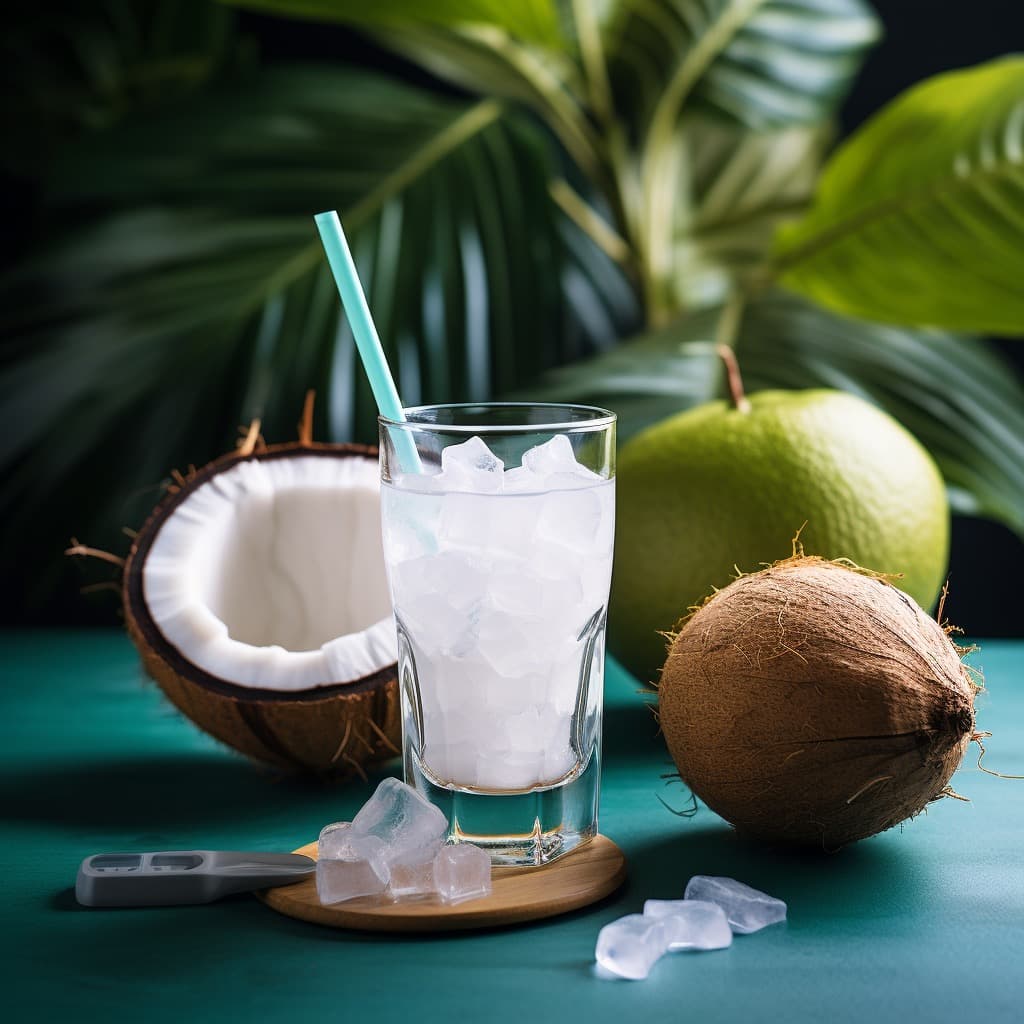Diabetes is a chronic condition that affects millions of people worldwide. It requires careful management of diet and lifestyle choices to keep blood sugar levels in check. When it comes to beverages, individuals with diabetes often wonder which options are safe and suitable for their condition. One such beverage that has gained popularity in recent years is coconut water. But is coconut water a good choice for diabetic individuals? In this article, we will explore the topic and shed light on the potential benefits and considerations of consuming coconut water for those with diabetes.
Introduction
Living with diabetes requires a mindful approach to food and drink choices to maintain stable blood sugar levels. Coconut water has emerged as a trendy beverage, known for its refreshing taste and various health claims. However, before incorporating it into a diabetic diet, it is essential to understand its nutritional composition and how it affects blood sugar levels.
Nutritional Composition of Coconut Water
Coconut water is the clear liquid found inside young, green coconuts. It is often touted as a natural and hydrating alternative to sugary beverages. Let's take a closer look at its nutritional profile to understand its potential impact on diabetes management.
Coconut water is low in calories and fat, making it an attractive option for those watching their weight. It is also rich in essential electrolytes such as potassium, magnesium, and sodium, which are crucial for maintaining proper hydration and supporting various bodily functions. Additionally, coconut water contains small amounts of carbohydrates, including natural sugars.
Glycemic Impact of Coconut Water
One of the key concerns for individuals with diabetes is the glycemic impact of the foods and beverages they consume. The glycemic index (GI) is a scale that ranks foods based on how quickly they raise blood sugar levels. Understanding the glycemic impact of coconut water is essential in determining its suitability for diabetic individuals.
Coconut water has a relatively low glycemic index, typically ranging from 35 to 54, depending on factors such as ripeness and processing. This means that it has a moderate impact on blood sugar levels compared to high-GI beverages like sugary sodas. However, it is important to note that individual responses to foods can vary, and factors such as portion size and overall diet should be taken into consideration.
Benefits of Coconut Water for Diabetic Individuals
While coconut water does contain natural sugars, it also offers potential benefits that may make it suitable for diabetic individuals when consumed in moderation. Let's explore some of these benefits:
Hydration and Blood Sugar Control
Proper hydration is essential for everyone, including individuals with diabetes. Dehydration can affect blood sugar levels and overall well-being. Coconut water can help maintain adequate hydration due to its electrolyte content. Staying hydrated can promote stable blood sugar levels and support overall health.
Electrolyte Balance and Insulin Sensitivity
The electrolytes present in coconut water, such as potassium and magnesium, play a crucial role in maintaining electrolyte balance and supporting insulin sensitivity. Insulin is a hormone that helps regulate blood sugar levels, and improved insulin sensitivity can contribute to better diabetes management.
Rich Source of Nutrients and Antioxidants
Coconut water is a natural source of vitamins, minerals, and antioxidants. These nutrients can support overall health and well-being. While they may not directly impact blood sugar levels, a well-nourished body is better equipped to manage diabetes effectively.
Considerations for Diabetic Individuals
While coconut water may offer potential benefits, it is important for individuals with diabetes to consider the following factors:
Moderation and Portion Control
Even though coconut water has a lower glycemic impact compared to sugary beverages, it still containsnatural sugars that can affect blood sugar levels. It is crucial to consume coconut water in moderation and practice portion control. Consulting with a healthcare professional or a registered dietitian can help determine an appropriate serving size based on individual needs.
Individual Variations and Monitoring Blood Sugar Levels
Each person with diabetes may have different responses to various foods and beverages. It is important to monitor blood sugar levels after consuming coconut water to understand how it personally affects glucose levels. Regular monitoring can help identify any potential spikes or fluctuations and guide future choices.
Consulting with Healthcare Professionals
Individuals with diabetes should always consult with their healthcare team, including doctors and dietitians, before making any significant changes to their diet or incorporating new beverages. Healthcare professionals can provide personalized guidance based on an individual's specific health condition, medication regimen, and overall dietary requirements.
Potential Risks and Precautions
While coconut water can be a beneficial addition to a diabetic diet, there are a few potential risks and precautions to consider:
High Potassium Content in Coconut Water
Coconut water is naturally high in potassium, which can be a concern for individuals with certain kidney conditions or those taking medications that affect potassium levels. It is essential to discuss potassium intake with a healthcare professional to ensure it aligns with individual needs and medical considerations.
Interactions with Diabetes Medications
Coconut water, like any other food or beverage, may interact with certain diabetes medications. It is important to discuss the consumption of coconut water with a healthcare professional to ensure there are no potential interactions that could affect medication effectiveness or safety.
Allergies and Sensitivities
While rare, some individuals may be allergic to coconut or have sensitivities to coconut products. It is important to be aware of any allergies or sensitivities and avoid consuming coconut water if necessary. If unsure, consulting with a healthcare professional can provide guidance in determining potential allergens or sensitivities.
Recommendations for Diabetic Individuals
Based on the considerations mentioned above, here are some general recommendations for diabetic individuals regarding the consumption of coconut water:
Incorporating Coconut Water into a Balanced Diet
If an individual with diabetes enjoys the taste and benefits of coconut water, it can be incorporated into a balanced diet. It is important to ensure that overall carbohydrate intake, including sugars from coconut water, is accounted for and fits within the recommended limits established by healthcare professionals.
Choosing Fresh and Natural Coconut Water
When opting for coconut water, it is advisable to choose fresh and natural options rather than processed or sweetened varieties. Fresh coconut water is likely to contain fewer additives and added sugars, making it a healthier choice.
Personalized Approach and Individual Preferences
Ultimately, the decision to consume coconut water as a diabetic individual should be based on personal preferences, individual responses, and guidance from healthcare professionals. Each person's diabetes management plan is unique, and what works for one may not work for another. It is important to listen to the body, monitor blood sugar levels, and make informed choices accordingly.
Conclusion
In conclusion, coconut water can be a refreshing and hydrating beverage option for individuals with diabetes when consumed in moderation. Its moderate glycemic impact, electrolyte content, and nutrient profile may offer potential benefits. However, it is important to consider individual variations, practice moderation, monitor blood sugar levels, and consult with healthcare professionals to ensure it aligns with one's diabetes management plan.
FAQs
Can coconut water replace traditional diabetes management methods? Coconut water should not replace traditional diabetes management methods, such as medication, exercise, and a balanced diet. It can be a part of a well-rounded diabetes management plan but shouldnot be relied upon as the sole method for managing diabetes.
How much coconut water is safe to consume for individuals with diabetes? The amount of coconut water that is safe to consume can vary depending on individual factors, such as blood sugar levels, medication regimen, and overall diet. It is best to consult with a healthcare professional or registered dietitian to determine the appropriate serving size for your specific needs.
Are there any alternative beverages for diabetic individuals apart from coconut water? Yes, there are various alternative beverages that can be suitable for diabetic individuals, such as unsweetened herbal teas, infused water, and plain water. These options are generally low in calories and sugar, making them diabetic-friendly choices.
Can coconut water cause a sudden spike in blood sugar levels? While coconut water has a lower glycemic impact compared to sugary beverages, it still contains natural sugars that can affect blood sugar levels. Monitoring blood sugar levels after consuming coconut water can help identify any individual responses and determine its impact on glucose levels.
Are there any specific brands of coconut water recommended for individuals with diabetes? There are many brands of coconut water available on the market, and the nutritional composition can vary. It is advisable to choose fresh and natural coconut water without added sugars or additives. Reading product labels and selecting options with minimal processing can help ensure a healthier choice.
Please note that the information provided in this article is for informational purposes only and should not replace professional medical advice. It is important to consult with a healthcare professional or registered dietitian for personalized guidance and recommendations based on your specific health condition and needs.




